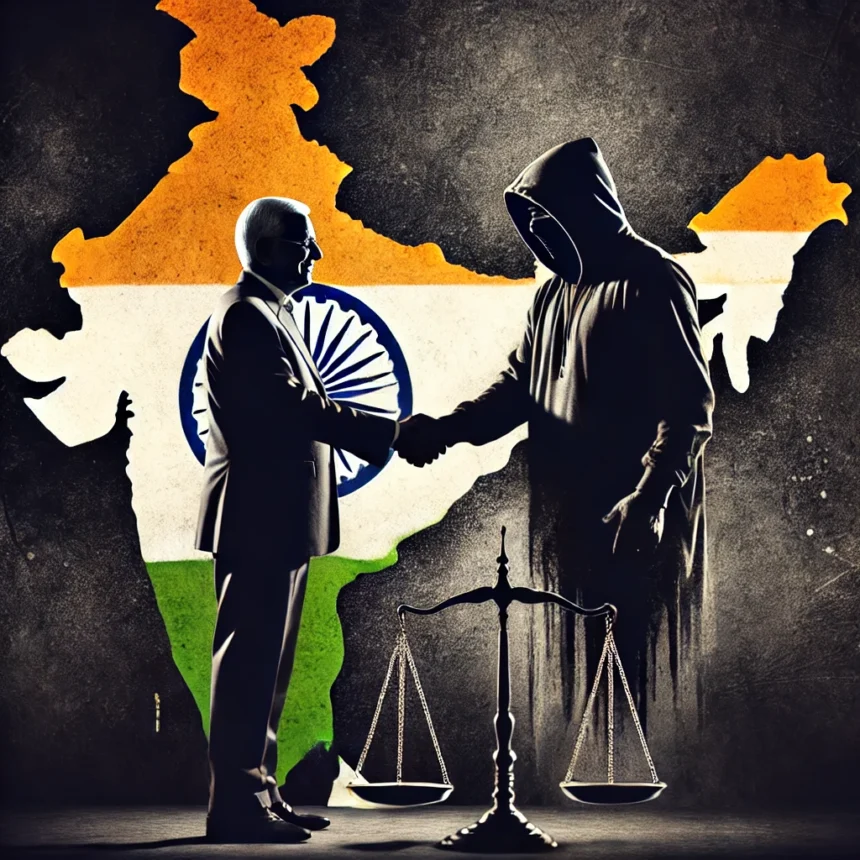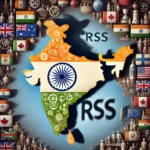In recent years, the criminal underworld in India has gained significant attention, and one name that frequently makes headlines is the Bishnoi gang. Known for their involvement in high-profile crimes, this gang has amassed a reputation as a powerful criminal network. However, a new controversy has emerged, with allegations that certain political factions and state authorities may be using the Bishnoi gang for settling scores. This raises serious concerns about law enforcement, justice, and the dangerous intertwining of crime and politics.
This blog post explores these allegations, the nature of the Bishnoi gang, and the broader implications of state-sponsored criminal activity in India.
Who Are the Bishnoi Gang?
The Bishnoi gang is a notorious criminal organization based in the northern states of India, particularly active in Rajasthan, Haryana, and Punjab. Led by gangster Lawrence Bishnoi, the group has been linked to a wide range of criminal activities, including extortion, arms trafficking, and contract killings. What sets them apart from other gangs is their connections to powerful individuals and their ability to evade law enforcement through a network of loyal operatives.
Recently, the gang was thrust into the spotlight for its alleged involvement in the murder of Punjabi singer Sidhu Moosewala, bringing increased scrutiny to their operations.
Allegations of Political Use: A Dangerous Trend
- Criminals as Political Tools
Allegations have surfaced suggesting that certain political factions may be exploiting the Bishnoi gang to settle personal or political scores. This is a serious concern, as it implies the use of organized crime for carrying out covert actions or targeting political opponents. Such a dynamic would erode trust in law enforcement and blur the lines between legitimate governance and criminal activity. - State-Backed Operations or Rogue Elements?
Some reports have suggested that elements within state governments may be turning a blind eye to the activities of the Bishnoi gang, allowing them to act as enforcers when it benefits the state’s interests. However, it remains unclear whether these actions are sanctioned by higher levels of government or if they are the result of rogue elements acting independently. - Settling Political Scores Through Violence
The use of criminal gangs to settle political scores is not a new phenomenon in India. There have been instances in the past where organized crime groups have been allegedly hired to intimidate or eliminate rivals. The Bishnoi gang, with its extensive network and fearsome reputation, is a convenient tool for such purposes. These allegations, if true, point to a worrying trend of using extrajudicial means to maintain political control.
Implications for Justice and Governance
- Erosion of Public Trust
The involvement of criminal elements in political activities severely undermines the public’s trust in the government and law enforcement agencies. When the lines between crime and governance blur, it becomes increasingly difficult for citizens to feel secure. This could lead to widespread disillusionment with the political system, and people may begin to believe that justice is reserved only for the powerful. - Impact on Law Enforcement
The alleged collusion between political figures and criminal gangs places law enforcement in a precarious position. Police and other agencies tasked with upholding the law may find themselves compromised, unable to act against powerful criminal syndicates due to political pressure. This undermines the integrity of the judicial process and weakens the rule of law. - International Repercussions
India’s global image as a democratic nation rooted in the rule of law may also be tarnished by these allegations. If state actors are indeed using criminal gangs to settle scores, it could raise questions about India’s governance on the international stage. Countries that value human rights and rule of law may view these actions as undemocratic and potentially damaging to bilateral relations.
Recent High-Profile Cases and Their Link to the Bishnoi Gang
The Bishnoi gang’s growing notoriety has brought them into the center of several high-profile criminal cases. The killing of Sidhu Moosewala is just one example of how deep-rooted the gang’s influence is within the entertainment and political sectors. The gang’s connections to celebrities, politicians, and law enforcement officials have created an aura of invincibility around them.
A Call for Transparency and Justice
The alleged use of criminal gangs like the Bishnoi network by state actors is a deeply troubling issue that needs to be addressed with urgency. If these allegations are substantiated, it represents a serious violation of the rule of law and a dangerous precedent for future governance in India. The government must take decisive action to investigate these claims and ensure that law enforcement agencies are not compromised by political interests.
To uphold democracy and the rule of law, citizens, human rights organizations, and independent media must come together to demand accountability from both political figures and law enforcement agencies. Only through transparency and vigilance can India safeguard its democracy from the influence of criminal gangs.










